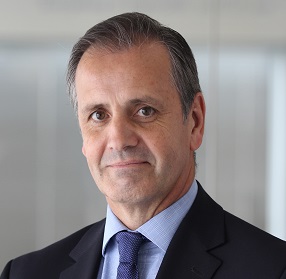A focus on equity must become culturally embedded in the NHS as part of “the way we do things around here,” say Navina Evans and Derek Feeley
In 2020, we saw the rise of one pandemic—covid-19—and the (tragically late) acknowledgment of another: institutional and structural racism. Covid-19 has added a greater sense of urgency to our struggle to achieve a fairer healthcare system. Yet even if the novel coronavirus hadn’t disproportionately ravaged communities of colour, equity would still need to be at the core of any conception of what healthcare quality should look like over the next 20 years.
Many of the inequities in healthcare that existed at the turn of this century have persisted or worsened. We know why. Decisions made about what to improve and how to improve it, which don’t first ask crucial questions, such as “Who benefits?” and “Who gets left behind?”, only preserve and cement inequities. Designing quality improvement initiatives for certain populations rather than with the people most affected only leads to less improvement, less sustainability, less trust, and less equity.
This principle has guided the East London Foundation Trust (ELFT) and the Institute for Healthcare Improvement (IHI) in our work together over the past five years. In the early period of our work together, our efforts were concentrated on embedding the methodology, discipline, and science of quality improvement into the day to day workings at ELFT. It took an ongoing and sustained effort as there is a large number of staff, spread across many different services and teams over a wide geography.
As the organisation grows, people move and new colleagues join, but we’ve kept a strong focus on our people, as results can only be delivered if our staff make it happen. They believe in the culture of improvement, they understand the importance of the methodology and the use of data, they care, and they have resolve during hard times. Embedding QI changes the relationship between those with perceived power (managers) and everyone else, and staff are often more empowered as a result.
We invited patients and carers to become our partners in the delivery of improvements. At the trust board, we changed our approach to performance, assurance, communication, and operational delivery. Quality improvement became culturally embedded as part of “the way we do things around here.” By all of the NHS’s regular markers of quality assurance, the approach worked. The trust was rated outstanding by the Care Quality Commission, its staff engagement indices improved markedly, and it stayed in financial balance.
However, from the perspective of the trust leadership and their IHI partners, something was missing. The ELFT strategy was then reviewed in collaboration with staff and service users and was redefined to focus explicitly on delivering improved quality of life for all we serve.
As we changed the way we did things to deliver the promises in this new strategy, it became apparent that there can be no quality without equity. We had fallen into the same trap as so many other health systems. We had made demonstrable improvements in safety, effectiveness, timeliness, efficiency, and person centred care, but we had done so without a specific focus on the sixth of the Institute of Medicine’s domains of quality: equity. Improvements in equity are not an inevitable by-product of improvements in the other domains. If you want to improve equity, you need to remove specific institutional and cultural barriers with strategic intent and thoughtful implementation.
The tools and methods of quality improvement are well suited to efforts to improve equity in healthcare. The missing ingredient over the past decades has just been a sharply focused lens on equity. In practice, applying an equity lens includes actions like co-designing improvements with people who have lived experience of inequities. It means stratifying all data by race, ethnicity, language, sexual orientation, gender identity, and other relevant sociodemographic factors. And it requires a foundation for meaningful and sustainable change.
The Institute for Healthcare Improvement, together with multiple health systems, has described and tested a framework for pursuing equity in healthcare that can serve as just such a foundation. There are five components to the Framework for Improving Health Equity:
- Make health equity a strategic priority;
- Build infrastructure to support health equity;
- Address the multiple determinants of health;
- Eliminate racism and other forms of oppression; and
- Partner with the community.
We need to avoid thinking of equity as a balancing measure to other indicators of quality. It is an essential outcome. Clearly defining what we are trying to accomplish with regards to health equity; testing new ideas on how to improve health equity; and leveraging existing measures (and developing new ones) to determine whether we are, in fact, improving outcomes are all crucial (and, to experienced quality improvers, familiar) steps we must take over the next 20 years. If we don’t, another 20 years will pass, and there will still be no quality without equity.
As we start planning for future work in ELFT, we are strengthening our commitments to the people we serve. And we are ensuring that we design our future strategy to overcome the societal, cultural, and institutional inequities that covid-19 has laid bare. This must become another custom that is just part of “the way we do things around here.” We would like to see it become the way we do things in healthcare across the world.
 Navina Evans joined Health Education England on 1 October 2020 as the chief executive. She had previously been the chief executive at East London NHS Foundation Trust since 2016. She has more than 20 years of clinical experience in psychiatry, medicine, and paediatrics. Twitter @NavinaEvans
Navina Evans joined Health Education England on 1 October 2020 as the chief executive. She had previously been the chief executive at East London NHS Foundation Trust since 2016. She has more than 20 years of clinical experience in psychiatry, medicine, and paediatrics. Twitter @NavinaEvans
Competing interests: None declared.
 Derek Feeley is a senior fellow at the Institute for Healthcare Improvement and adviser to the board of East London NHS Foundation Trust. Twitter @derekfeeleyQI
Derek Feeley is a senior fellow at the Institute for Healthcare Improvement and adviser to the board of East London NHS Foundation Trust. Twitter @derekfeeleyQI
Competing interests: None declared.
